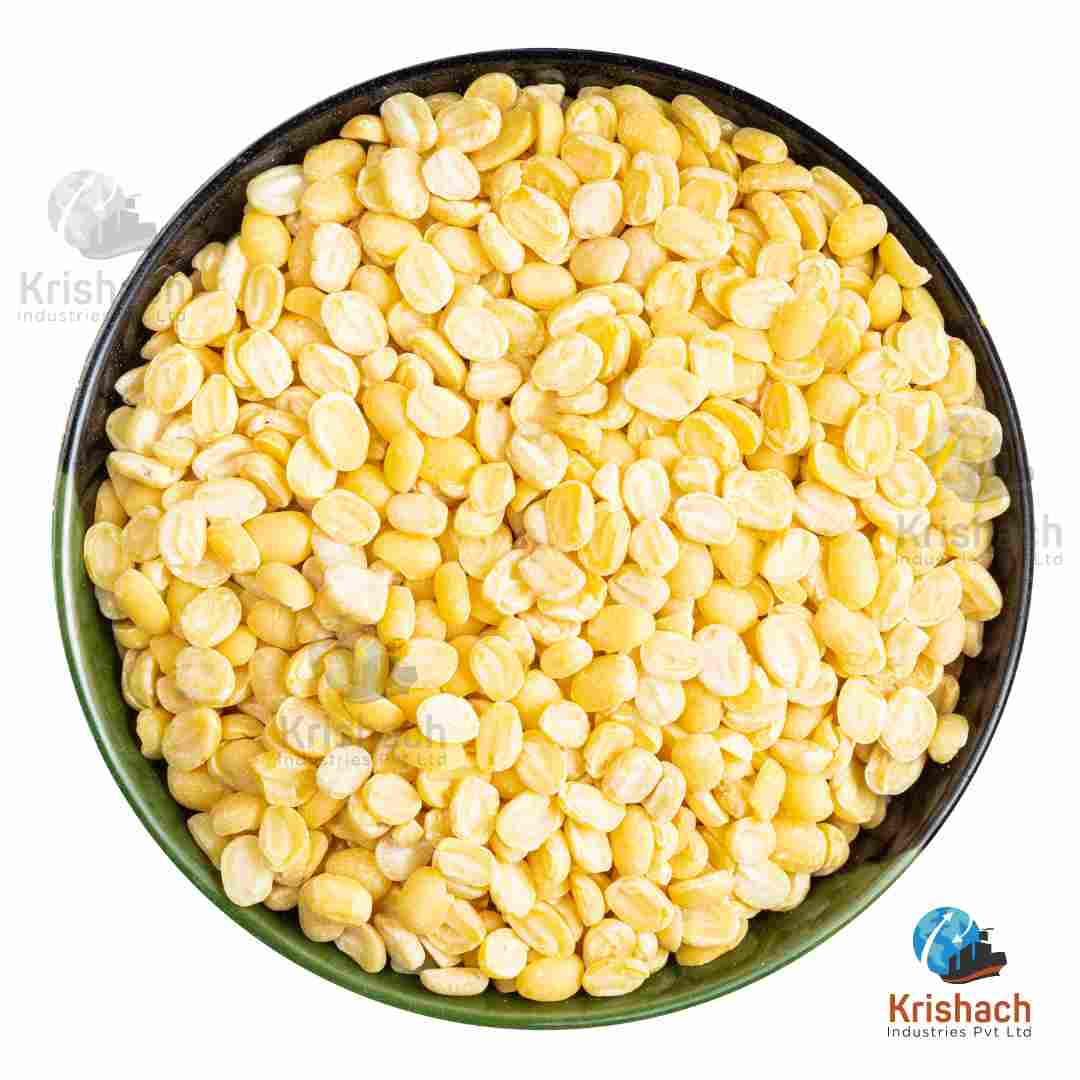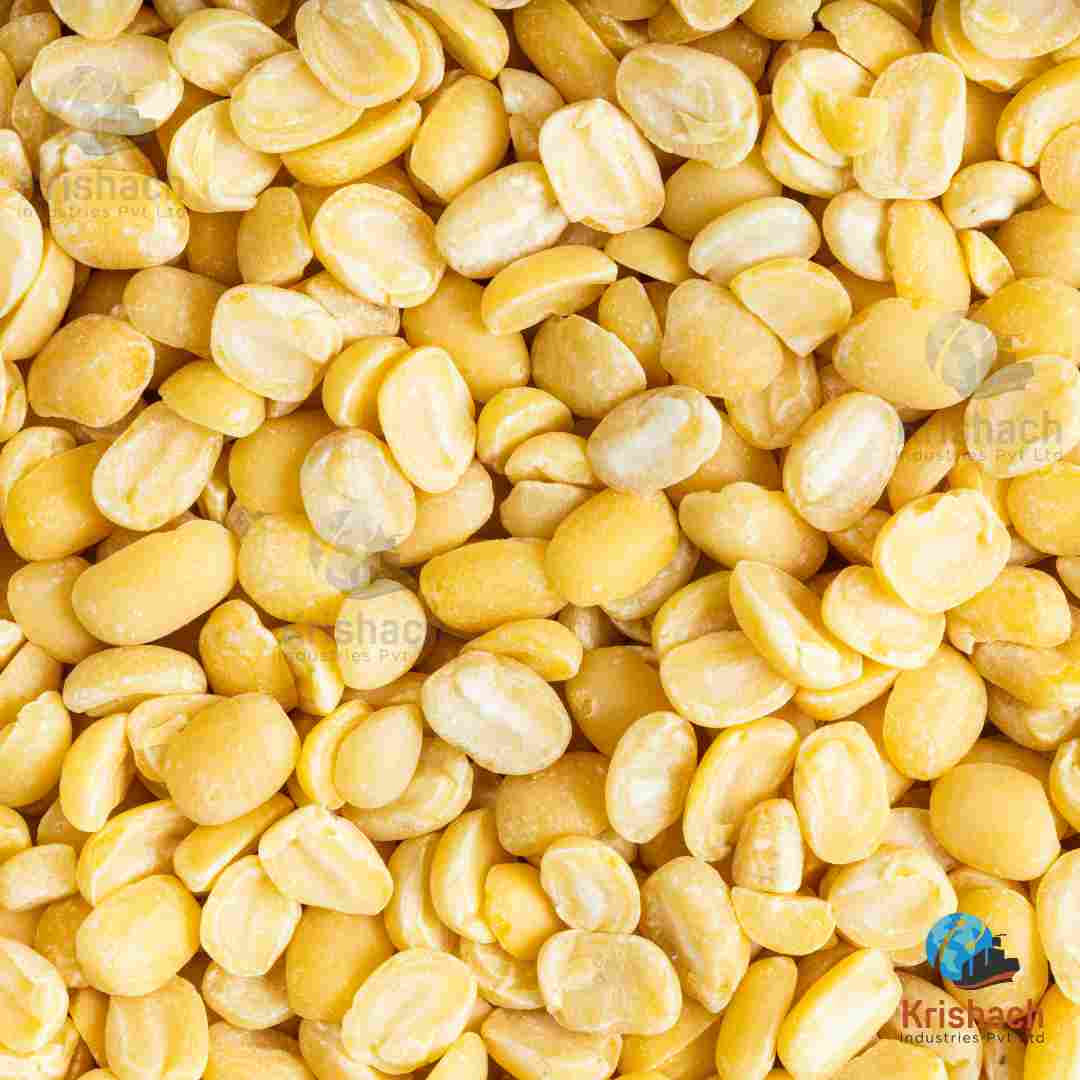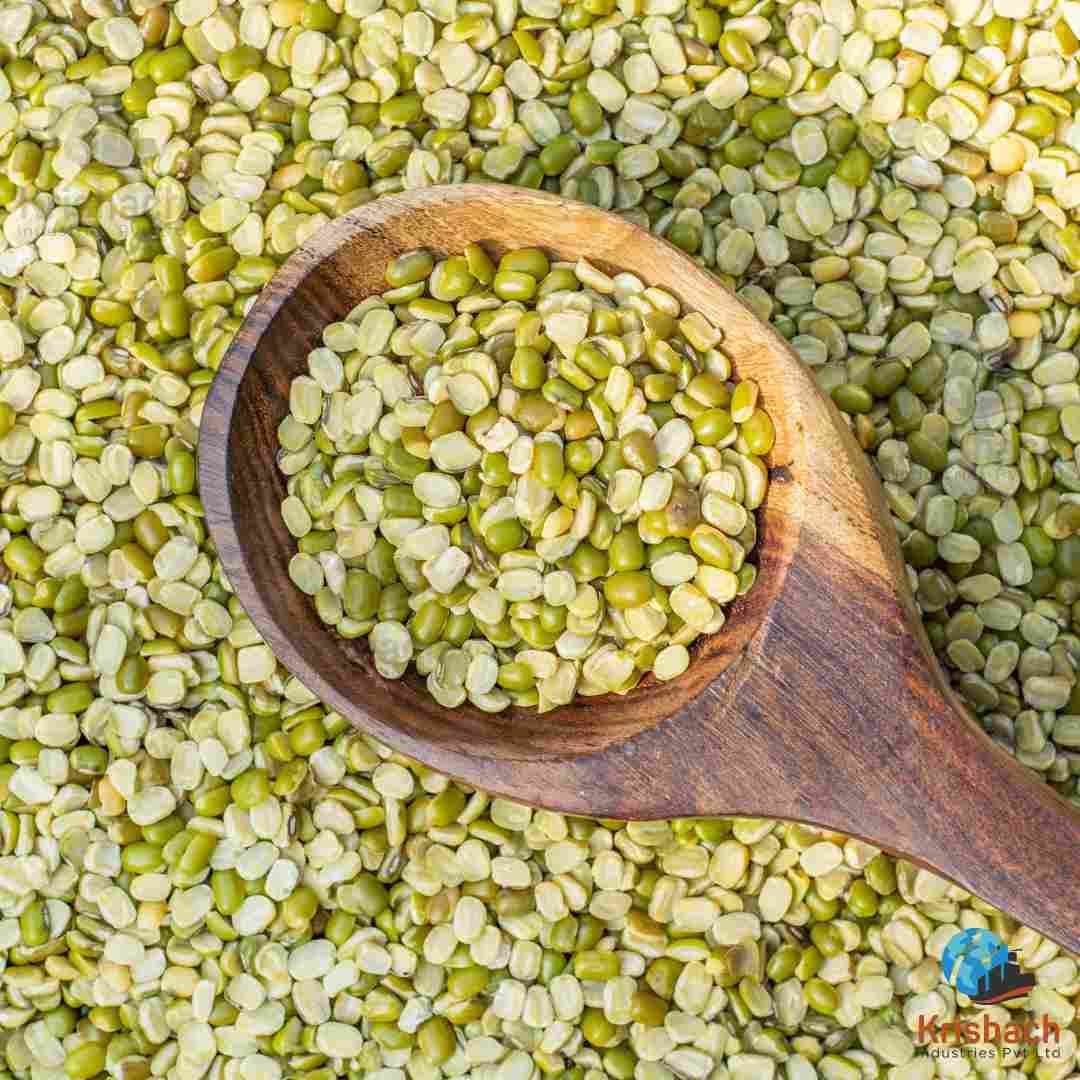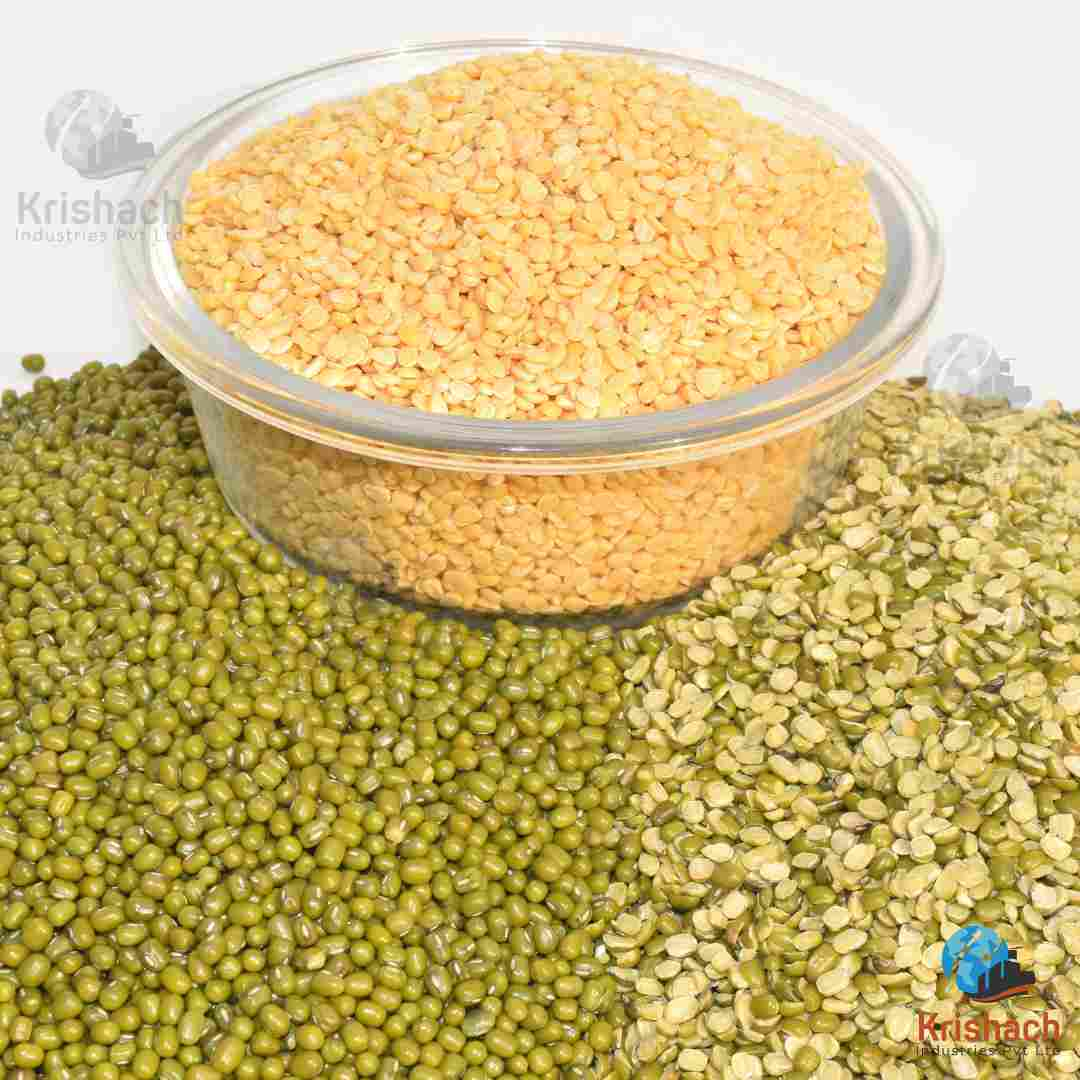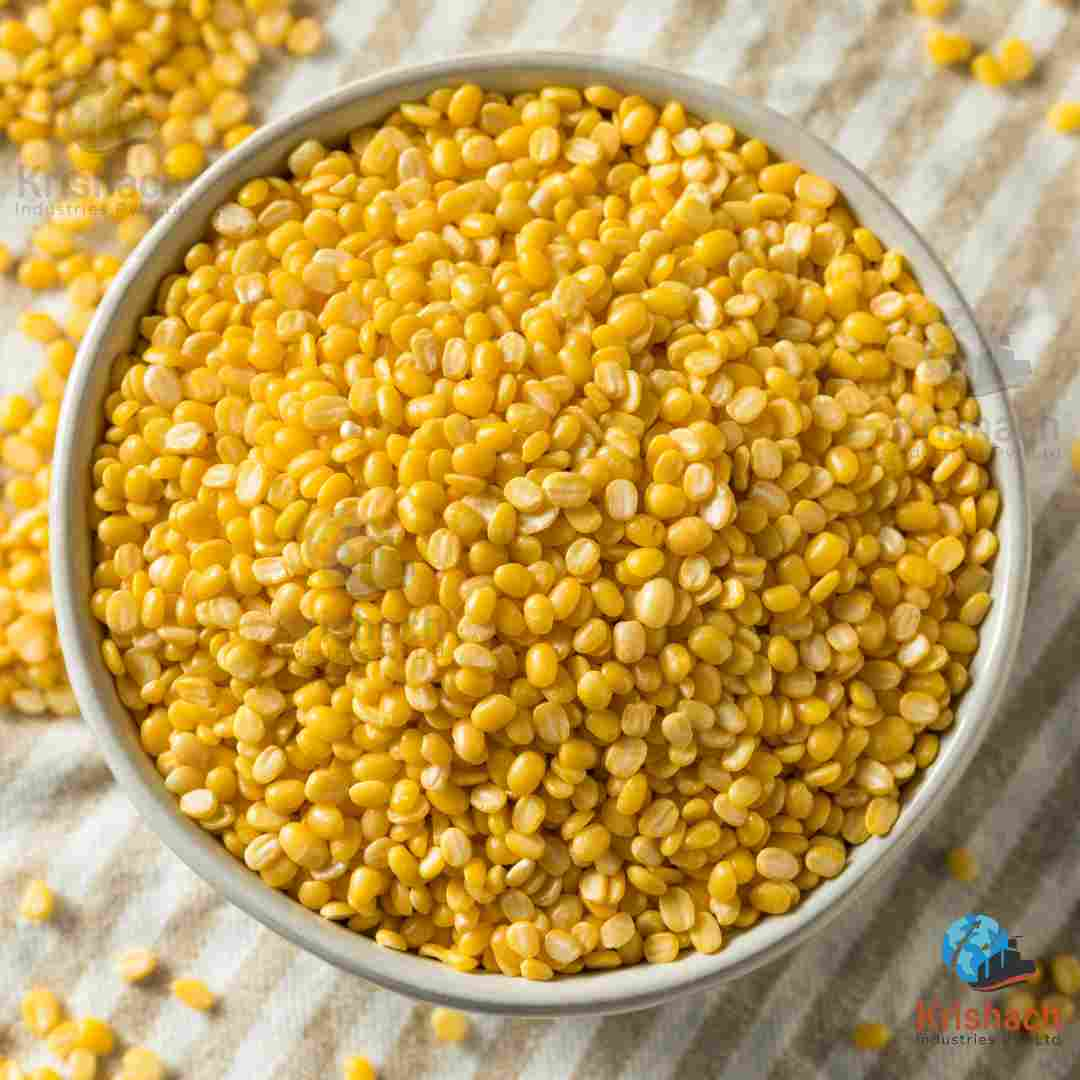Moong Dal, also known as split green gram, is a small, oval-shaped legume commonly used in Indian and Asian cuisines. It is made by removing the outer green skin of whole moong beans and splitting the yellow inner seed. Moong Dal is highly regarded for its versatility, quick cooking time, and high nutritional value, making it a staple ingredient in soups, curries, stews, and salads.
Key Characteristics:
Appearance: Small, yellow, and split halves of moong beans with the green husk removed.
Size: Approximately 2-4 mm in diameter.
Texture: Soft and creamy when cooked, with a smooth consistency.
Aroma: Mild and earthy, with a subtle, natural fragrance.
Flavors: Delicate, slightly sweet, and nutty, with the ability to absorb flavours from spices and other ingredients.
Specification:
Uses:
Moong Dal is a versatile, easy-to-digest lentil that can be used in a variety of dishes, from simple dals to more complex savoury recipes, making it a popular ingredient in daily meals.
Nutritional Value: Moong Dal is a powerhouse of nutrients, rich in plant-based protein, dietary fibre, and essential vitamins and minerals like potassium, magnesium, and B-vitamins. It is also low in fat and has a low glycaemic index, making it suitable for managing blood sugar levels and for those looking for a heart-healthy food option.
Benefits:
Moong dal is high in protein, fiber, antioxidants, and vitamins. It supports digestive health, weight management, and may reduce cholesterol levels.
Cultivate Seasons for India:
Mung beans, from which moong dal is made, are typically sown in June-July and harvested in October-November.
Our Services
Reliable Sourcing:
Sourcing high-quality Moong Dal (split green gram) begins by partnering with farmers from key cultivation regions in India, such as Rajasthan, Maharashtra, and Andhra Pradesh, where the climatic conditions and soil are ideal for growing premium moong beans. Farmers who practice sustainable and organic farming methods are prioritized to ensure the crops are non-GMO, free from synthetic pesticides, and grown using traditional methods that promote environmental conservation. Collaborating with certified suppliers ensures that the beans are harvested at peak maturity, providing optimal quality and nutrient content. Traceability and transparency in the supply chain are maintained to guarantee a consistent and reliable supply of Moong Dal.
Premium Quality Assurance:
The quality assurance process for Moong Dal involves stringent checks and measures to meet international food safety standards. After sourcing, the beans are tested for purity, moisture content, and contaminants such as pesticides, heavy metals, and microbial agents. Certifications such as ISO, HACCP, FSSAI, and USDA Organic are pursued to ensure the highest quality. The dal is also tested for colour, texture, and size uniformity to maintain premium standards. Regular inspections and adherence to food safety protocols guarantee that the Moong Dal retains its natural flavours, nutritional benefits, and freshness, free from impurities.
Processes:
The processing of Moong Dal involves several key steps to ensure premium quality and safety. The journey begins with harvesting the moong beans at full maturity, which are then dried in the field to lower moisture content. Post-harvest, the beans undergo mechanical cleaning to remove large debris such as stones and dirt, followed by a thorough sorting process to eliminate any damaged or discoloured beans. The next step is de-husking, where the green outer skin is removed to reveal the split yellow dal inside. The beans are then further cleaned and sorted to ensure uniform size and quality, using advanced optical sorters and gravity separators. If needed, additional drying is performed to maintain optimal moisture levels, typically below 10%, to prevent mold and spoilage. The final Moong Dal is packaged in airtight, moisture-proof containers to preserve freshness and quality. Throughout the process, strict quality control measures are in place to ensure that the dal meets high standards for purity, nutritional value, and safety before distribution to the market.
Packaging, Shipping & Delivery
Packaging:
Bags and Pouches:
For Moong Dal, high-quality food-grade materials such as laminated multi-layer pouches (made of materials like PET, PE, BOPP, and Aluminium foil) are used. These bags are moisture-proof and help retain the freshness, flavours, and aroma of the spices. Zip-lock pouches, stand-up pouches, and resealable bags are also popular for smaller quantities.
Polypropylene (PP) Woven Bags:
These are the most common types of bags used for packaging large quantities (25 kg and 40 kg) of Moong Dal. They are made of woven polypropylene material, which is strong, lightweight, and durable, providing excellent resistance to tearing and damage during handling and transport.
Laminated Bags:
For additional protection against moisture and humidity, PP woven bags can be laminated with a layer of plastic film. This lamination creates a barrier against moisture, ensuring the spices stay dry and fresh during transportation and storage.
Multi-Wall Paper Bags:
These bags consist of several layers of kraft paper, which provide strength and are often lined with a plastic or polyethylene layer to offer protection against moisture and humidity. They are environmentally friendly and widely used in many markets for exporting food products.
Vacuum-Sealed Packaging:
This type of packaging removes air from the package before sealing, which helps prevent oxidation and moisture build-up, preserving the quality and extending the shelf life of the spices.
Paper or Carton Boxes:
After the packaging, the smaller bags or pouches are placed in corrugated cardboard cartons or paper boxes. These cartons are sturdy, stackable, and protect the contents from physical damage during handling and transportation.
Palletization and Wrapping:
Cartons or sacks are often stacked on wooden or plastic pallets and wrapped with stretch film or shrink wrap. This provides stability, reduces the risk of damage during transport, and makes handling more efficient.
Export Documentation:
Handle all necessary export documentation, including phytosanitary certificates, certificates of origin, and any specific certifications required by the importing country.
Efficient Shipping:
Partner with reliable freight forwarders and logistics companies to ensure timely and safe delivery of goods. Offer multiple shipping options (air, sea, or land) based on customer preferences.




